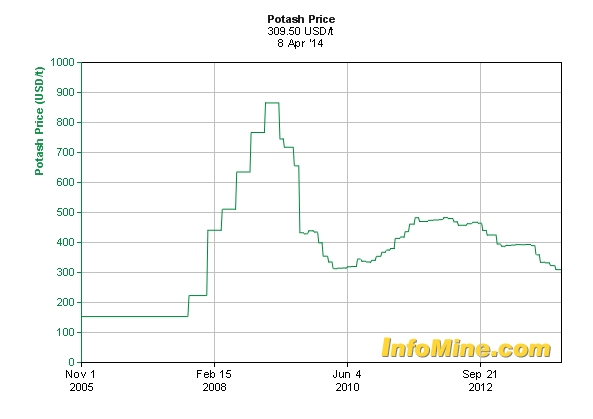This article offers colour on a potentially lucrative special situation opportunity surrounding the main-listed company, Shaftsinkers (LSE:SHFT). It is one of only a handful of specialist mining services firms in the business of sinking vertical and decline shafts as well as the development of underground infrastructure. Currently, the company’s prospects are entirely over-shadowed by the arbitration claims made against it by Eurochem, the listed Russian minerals company. EuroChem are claiming an eye-watering sum of $1,060m (around £640m).
Against SHFT’s market cap of £5.6m, it clearly looks like a ridiculous claim – are Eurochem just flexing their muscles or is something more sinister going on? It turns out the story is far greater than just a disagreement between Shaftsinkers and Eurochem. The Company has rather stumbled into the middle of two titan Oligarchs battling it out, using their companies ENRC (the ultimate owner of Shaftsinkers) and Eurochem as vehicles with which to do it.
The Original Story
Shaftsinkers’ wholly and indirectly owned subsidiary, Shaft Sinkers (Proprietary) Limited, and Rossal No.126 Proprietary Limited, its directly held immediate holding company, received arbitration claims made against them by a subsidiary of EuroChem: EuroChem Volga-Kaliy LLC (the contract signed between them was with Shaft Sinkers (Proprietary) Limited).
Shaftsinkers was originally contracted to sink a 1.1km shaft at the Volgakaliy potash mine, just 300km from Volgograd, Russia. The contract was signed in July 2008 and was worth $280m to Shaftsinkers. This was against a backdrop of ever rising potash prices. EuroChem planned to exploit this trend through increased production, with the Volgakaliy potash mine being a major piece to the expansion strategy. The capex required for the project would come to $3.6bn. It is now expected that the mine will be producing 4.6m tonnes of potash per annum by 2017, after suffering delays of almost three years.
These delays were largely blamed on Shaftsinkers: right from the outset the Company experienced technical, logistical and administrative challenges. The most significant problem was with regards to which method should be used to hold back water and avoid cave-ins. Shaftsinkers proposed a grouting technique, a method that had previously only been used once before in potash mine sinking, at Boulby in Yorkshire, England. The other, perhaps more conventional technique, is freezing, whereby the ground is frozen before the shaft is sunk. The controversial method of grouting was heralded to bring with it significant time and cost savings, and so Eurochem and Shaftsinkers opted to proceed with this approach. This would get potash out of the ground quicker and enable Eurochem to take advantage of the record potash prices.
However, by late 2011, due to extremely difficult ground conditions, progress was slow and Shaftsinkers sought to either amend or terminate the contract with Eurochem. Later, Eurochem claimed that it was Shaftsinkers grouting technology that was the route of the problem and had cost Eurochem $161m in direct costs as well as yet further pushing back production. Subsequently in October 2012 Eurochem deposited an arbitration claim of an initial $800m against Shaftsinkers to compensate the company for the direct costs incurred by Shaftsinkers as well as lost profits.
The validity of Eurochem’s claims immediately falls into question when one learns that Eurochem’s break-even price at Volgakaliy was unlikely to be less than $500/tonne. So there are no rightful lost profits to be claimed for as Eurochem’s mine would never have achieved break-even.
The ins and outs of the argument would happily swallow up pages of detailed story-telling, but we shall leave the story there. For more information on the argument and conspiracy surrounding the puppet-masters/Oligarchs in play, read the following article here.
The Option Opportunity
The arbitration is expected to be heard in the Summer of 2014, with any practical outcome due in early 2015. This creates an interesting back-drop for investors. We decide not to speculate explicitly on the likelihoods of a successful and unsuccessful outcome, but rather lay out the possible returns for each state of the world and offer an appropriate strategy to gain exposure to it.
The Good state of the world:
If Shaftsinkers are successful in their counter-claim, the Company will be due $16m as well as at least $7.5m in returned legal fees (as at 17/02/2014). This comes to a total of £14.1m, or 2.5x the current market cap. Further, the conclusion of the Eurochem arbitration claims will remove a major risk bearing over the company and would alone allow the Company’s market cap to re-rate significantly.
Consider that Shaftsinkers is currently expected to report profit before tax of between £2.5m and £3.0m for the year ending December 2013. Taking the mid-point and applying the rough historical tax rate of around 30% gives us a profit after tax figure of £1.9m. Shaftsinkers is therefore trading at a paltry P/E of 2.90x. This aptly captures the risk the market is applying to the stock, partly due to the Eurochem claim uncertainty. There are other considerations of course, like the labour unrest in South Africa where a large proportion of revenues are derived, a falling Rand which hurts Shaftsinkers’ earnings, and an overall lack of new significant contract signings.
Irrespective of this, a cash windfall of £14.1m and a conclusion to the arbitration claims would drive the market cap to at least £20m, or 41.5p. Against the current share price of 11.6p, this is an implied upside of 260% in less than a year. Or, a basic 10x P/E applied to the expcted profit after tax figure of £1.9m brings us to a similar valuation, with a higher P/E not being unreasonable.
The Bad state of the world:
In this scenario, Shaftsinkers is unsuccessful in its claims. If Eurochem are successful in their claims against Shaftsinkers then the ultimate case is liquidation, with nothing left for shareholders. The downside may not ultimately be zero, as the claim made against Shaftsinkers, if it is contained within a subsidiary, may enable the remainder of the company to operate as a going concern. But, it is unclear what the proportion of the Company’s net asset value is held within the subsidiary which would effectively be lost in the bad state. So, there is a chance that the cost to enter the bet is partially retrievable.
Conclusions:
Thus, this binary outcome scenario looks very much like an option: purchase shares for the opportunity of significant upside whilst considering the cost for this right as sunk.
It is worth considering Shaftsinkers with respect to an investment portfolio, and what appropriate weighting would limit risk and offer good upside. Imagine a £100k portfolio and one opts to invest just 1% in Shaftsinkers. If the bet pays off, the portfolio will be up, according to the above calculations, by a minimum of 2.6%. In the bad state though, the ultimate downside for the portfolio is -1%. A loss of 1% can be quickly retrieved on other investments while the upside such an allocation can provide is material to the entire portfolio for the year.
We think that Shaftsinkers offers an attractive binary bet which could pay off handsomely. We also believe that the probability of a positive outcome is greater than the bad state, further enhancing the attractiveness of this investment. Finally however, we do stress that the allocation of one’s portfolio to exposure in this name should be small, far smaller than one’s regular holdings given the fairly simplistic set of outcomes laid out above.


